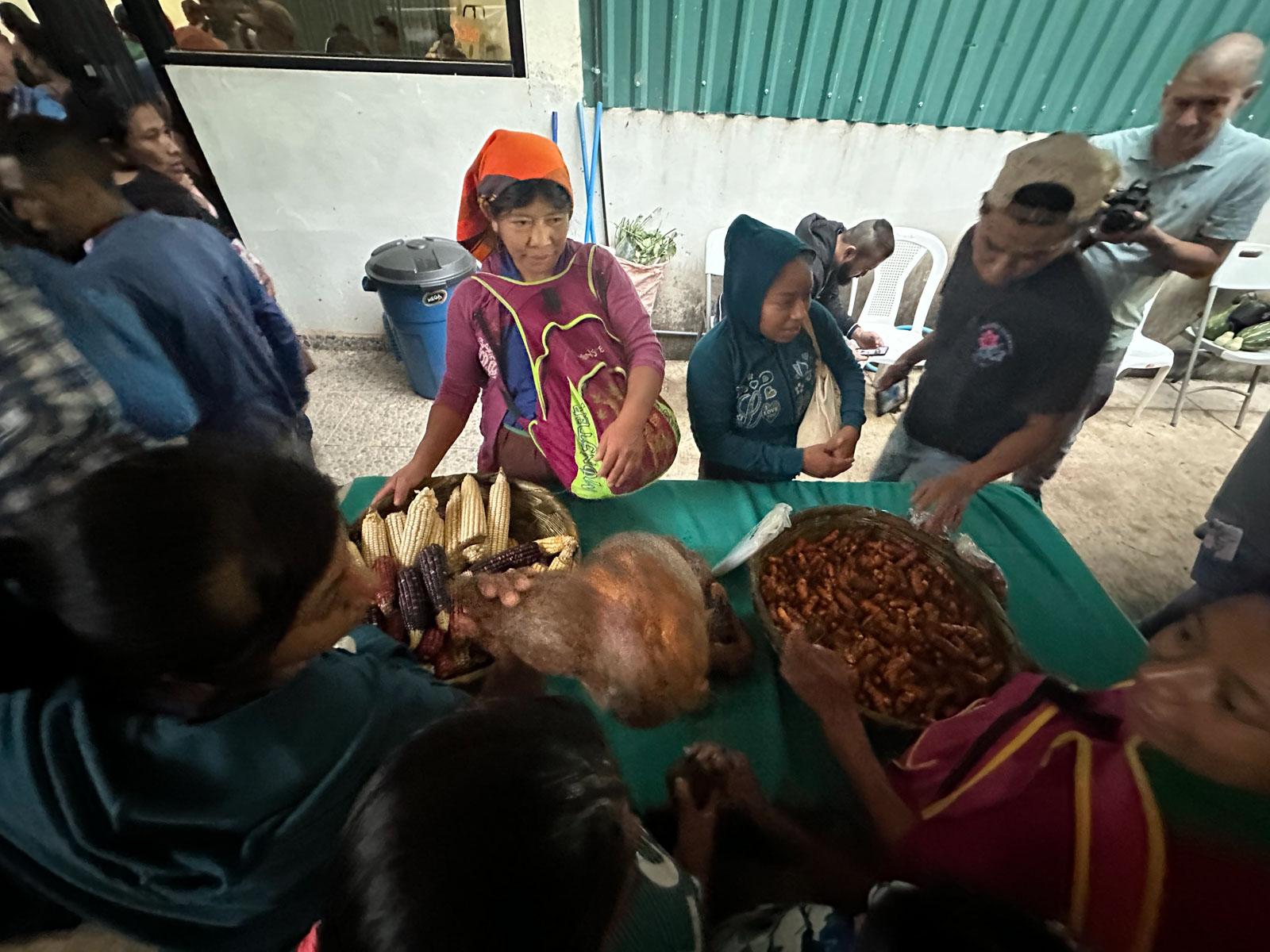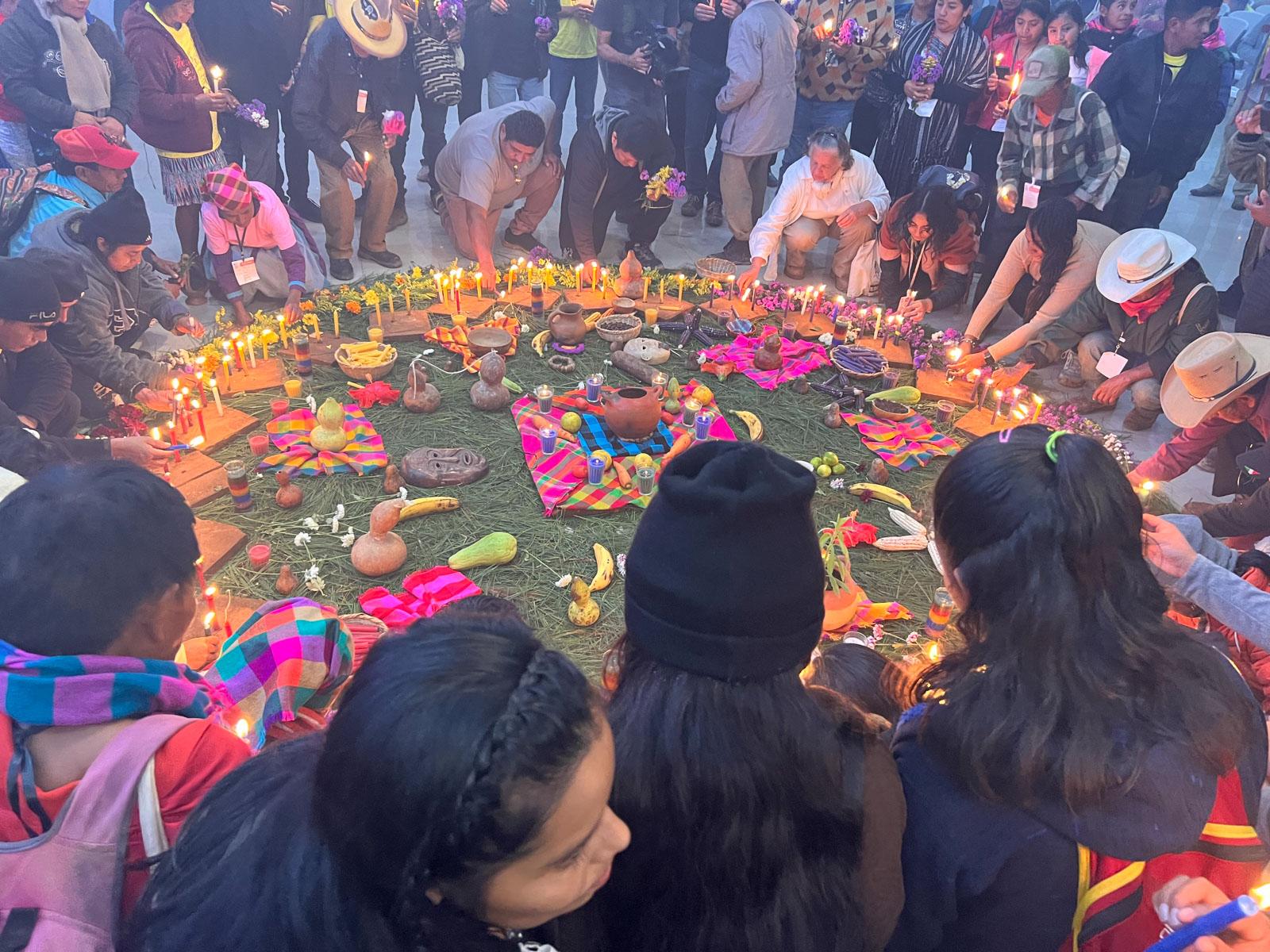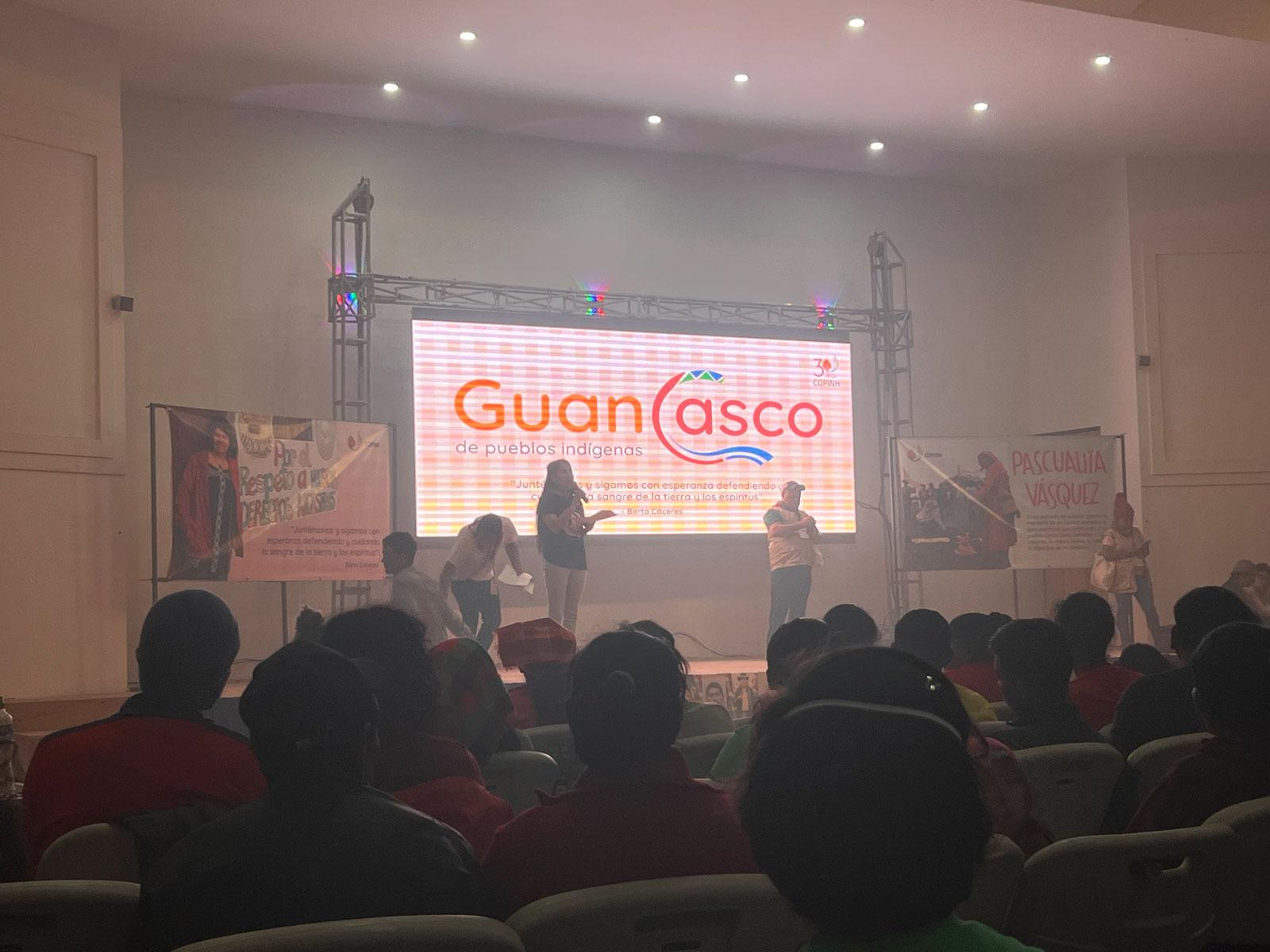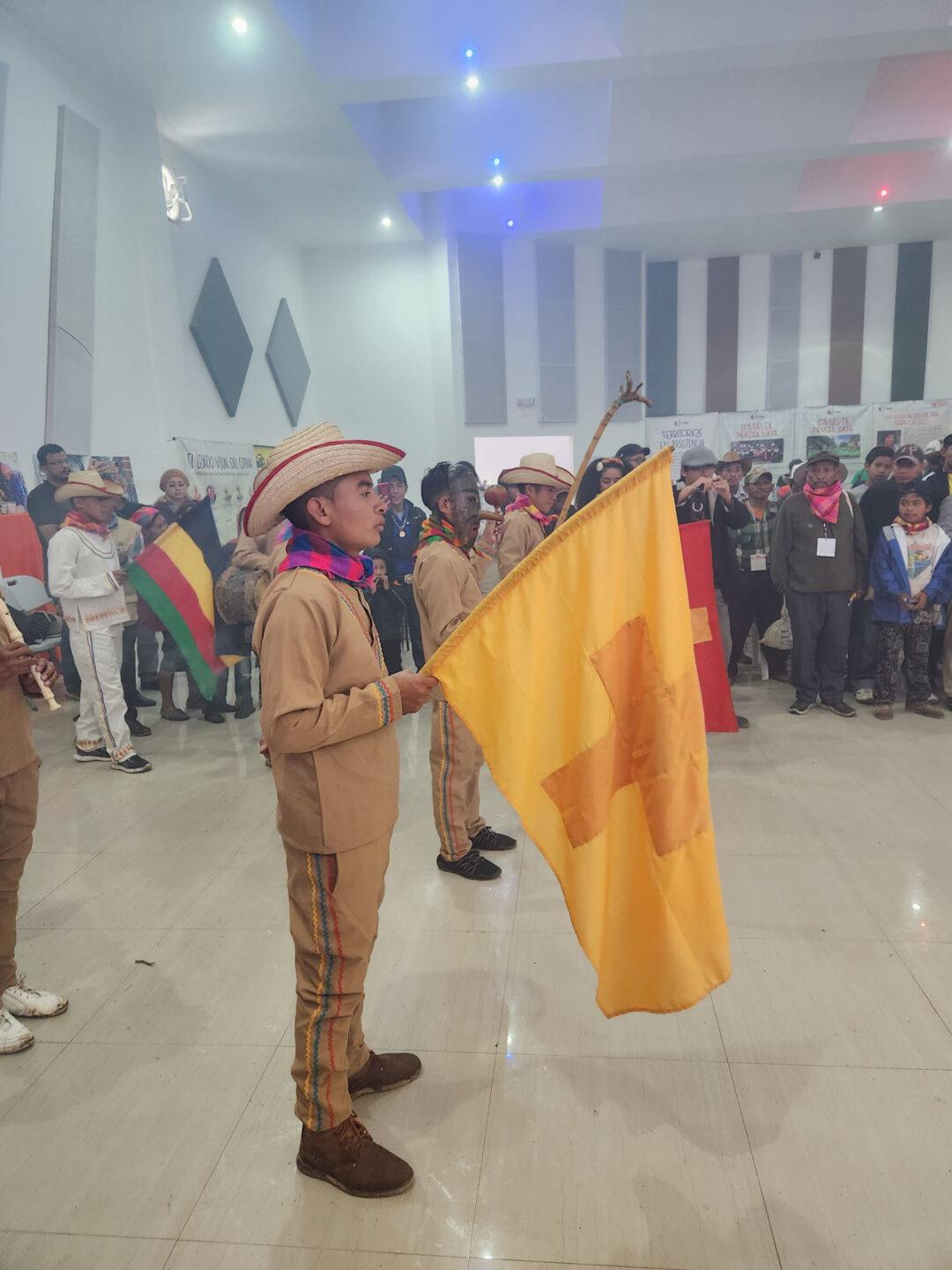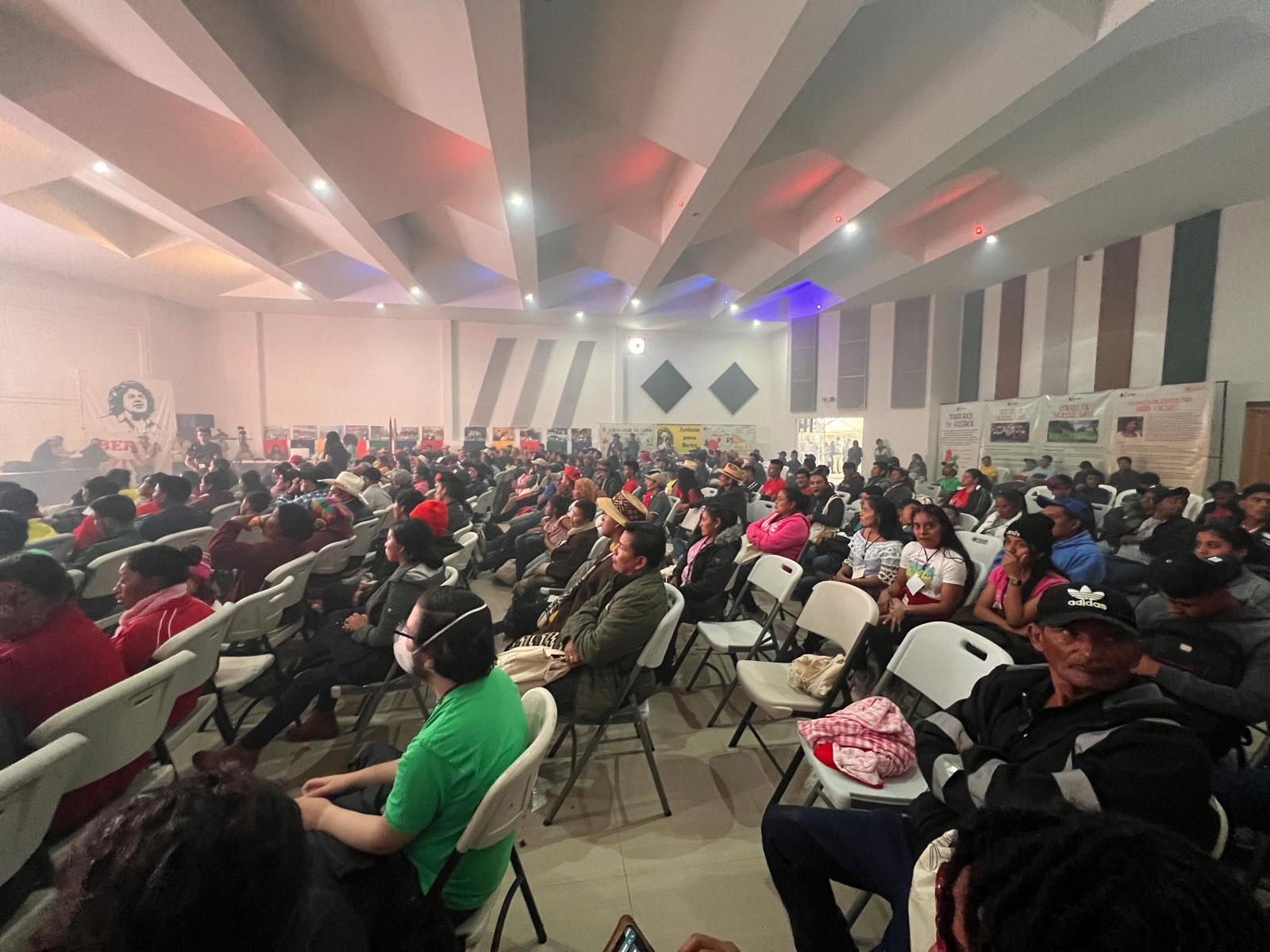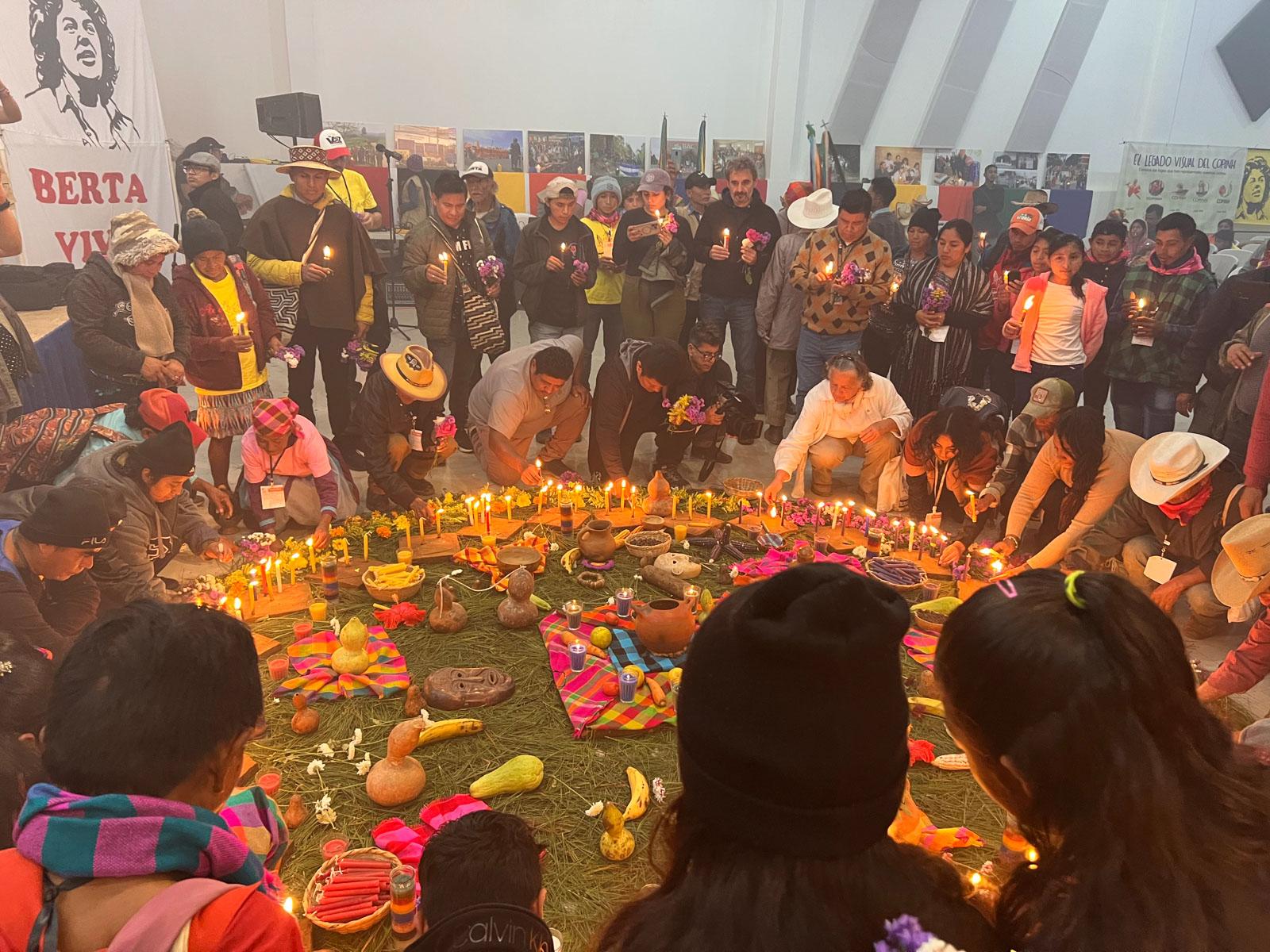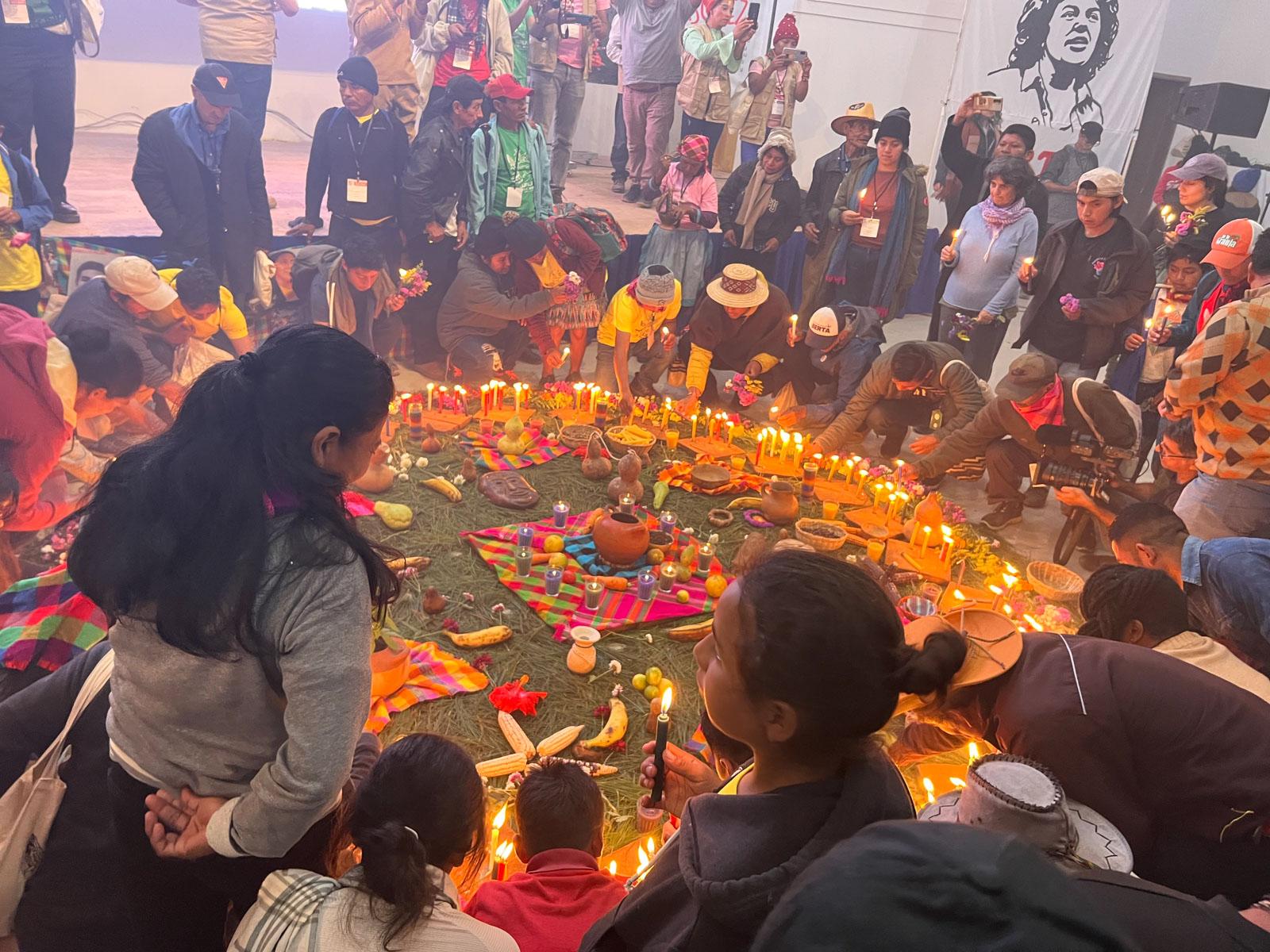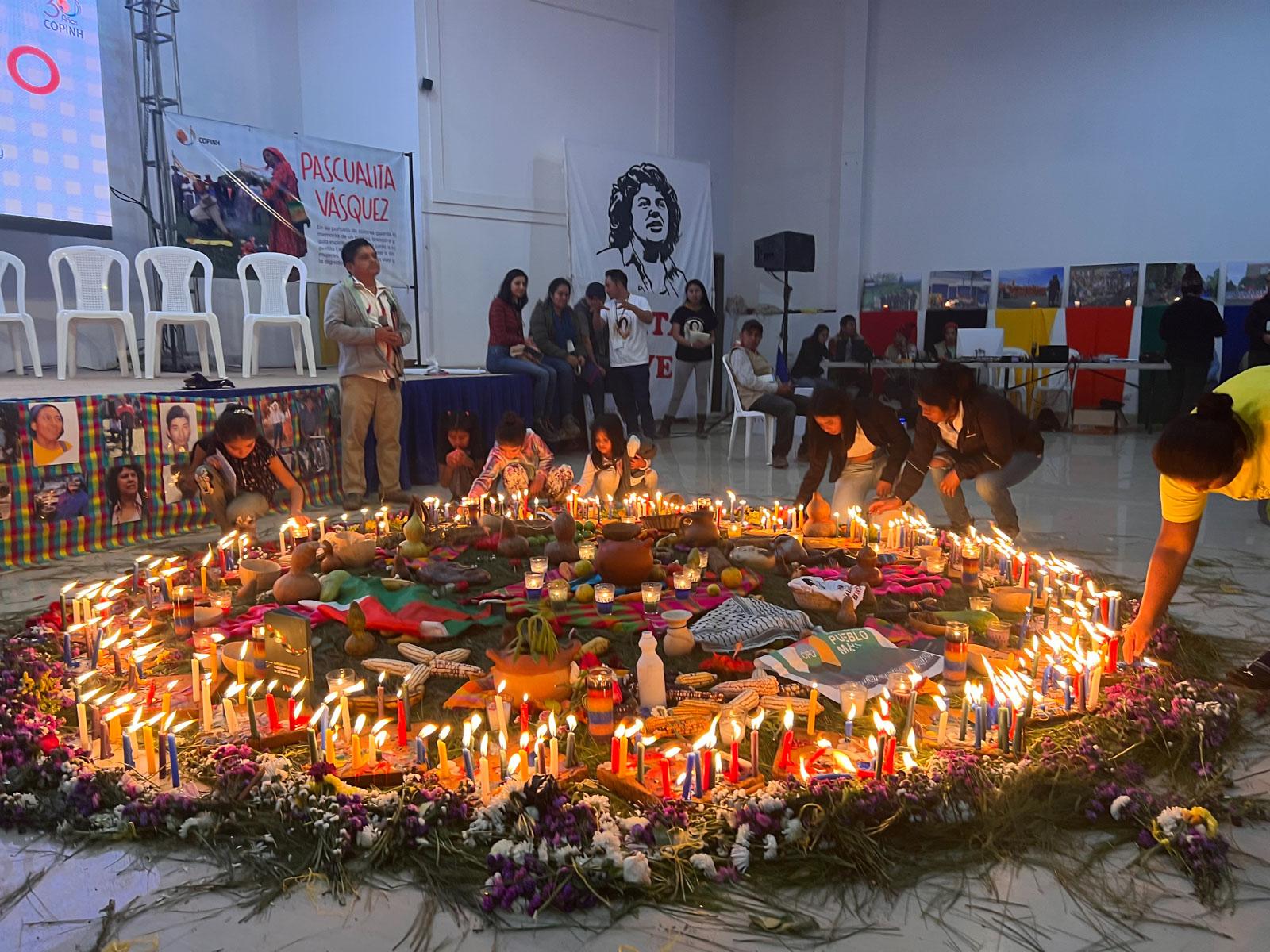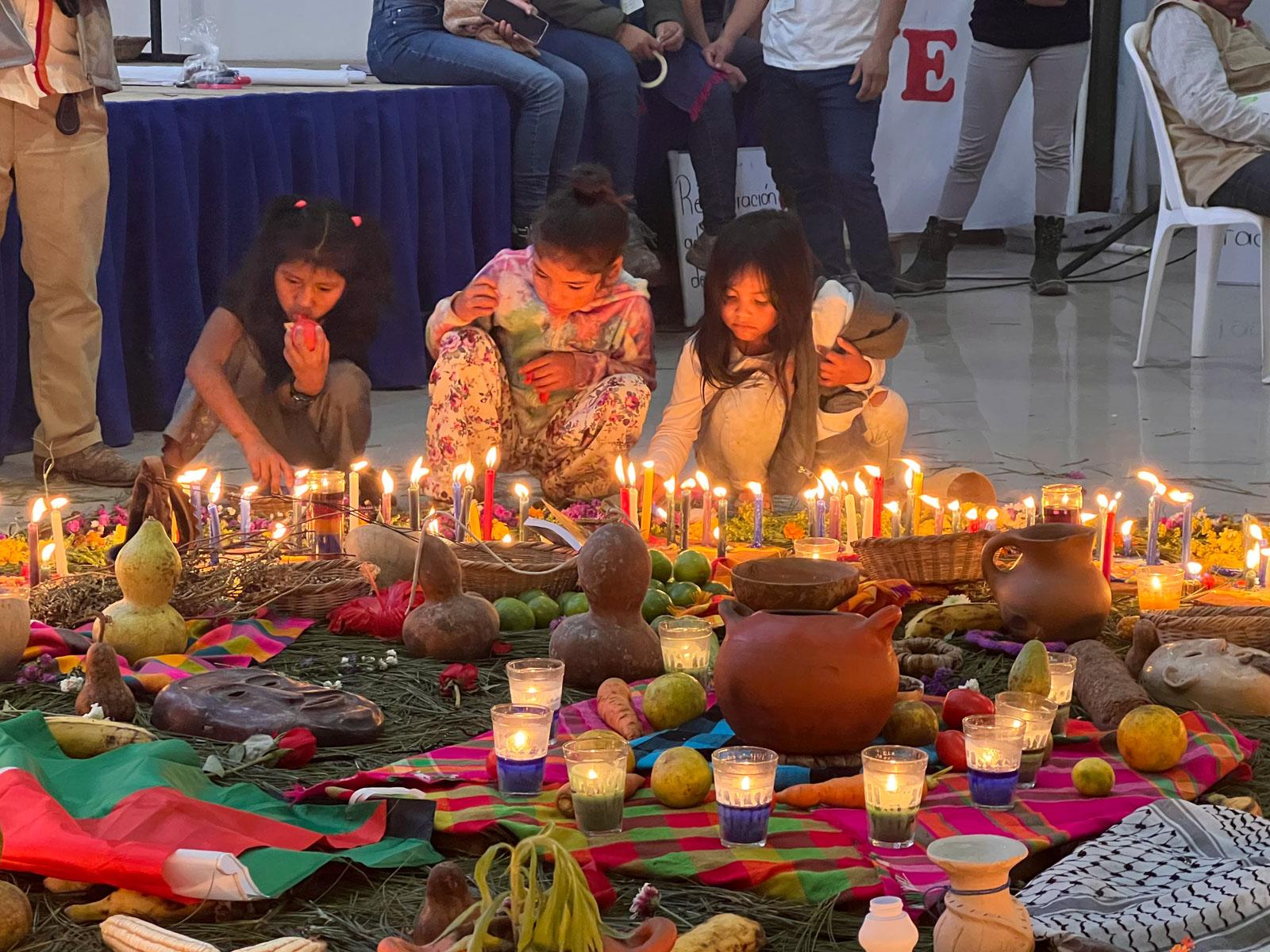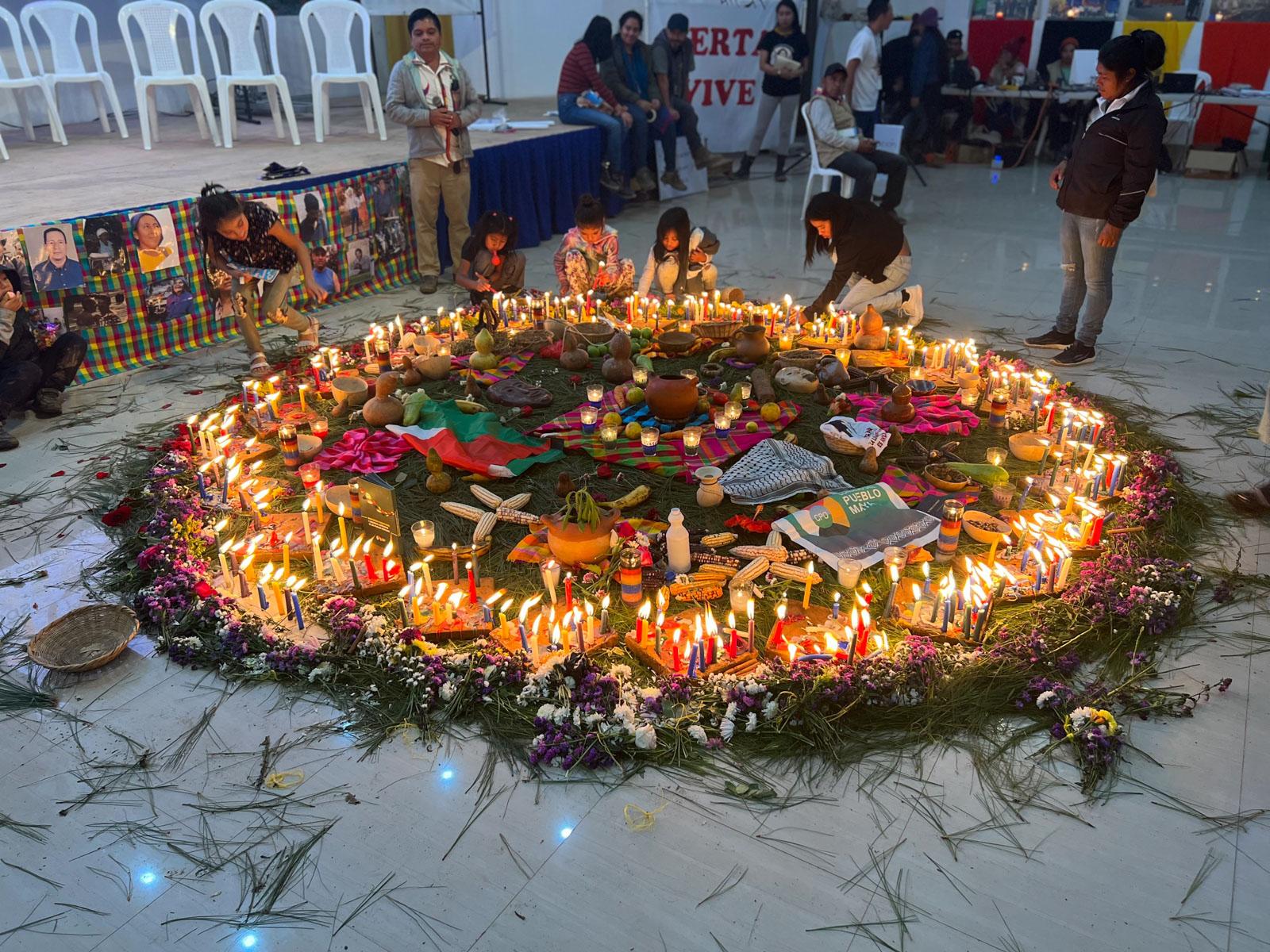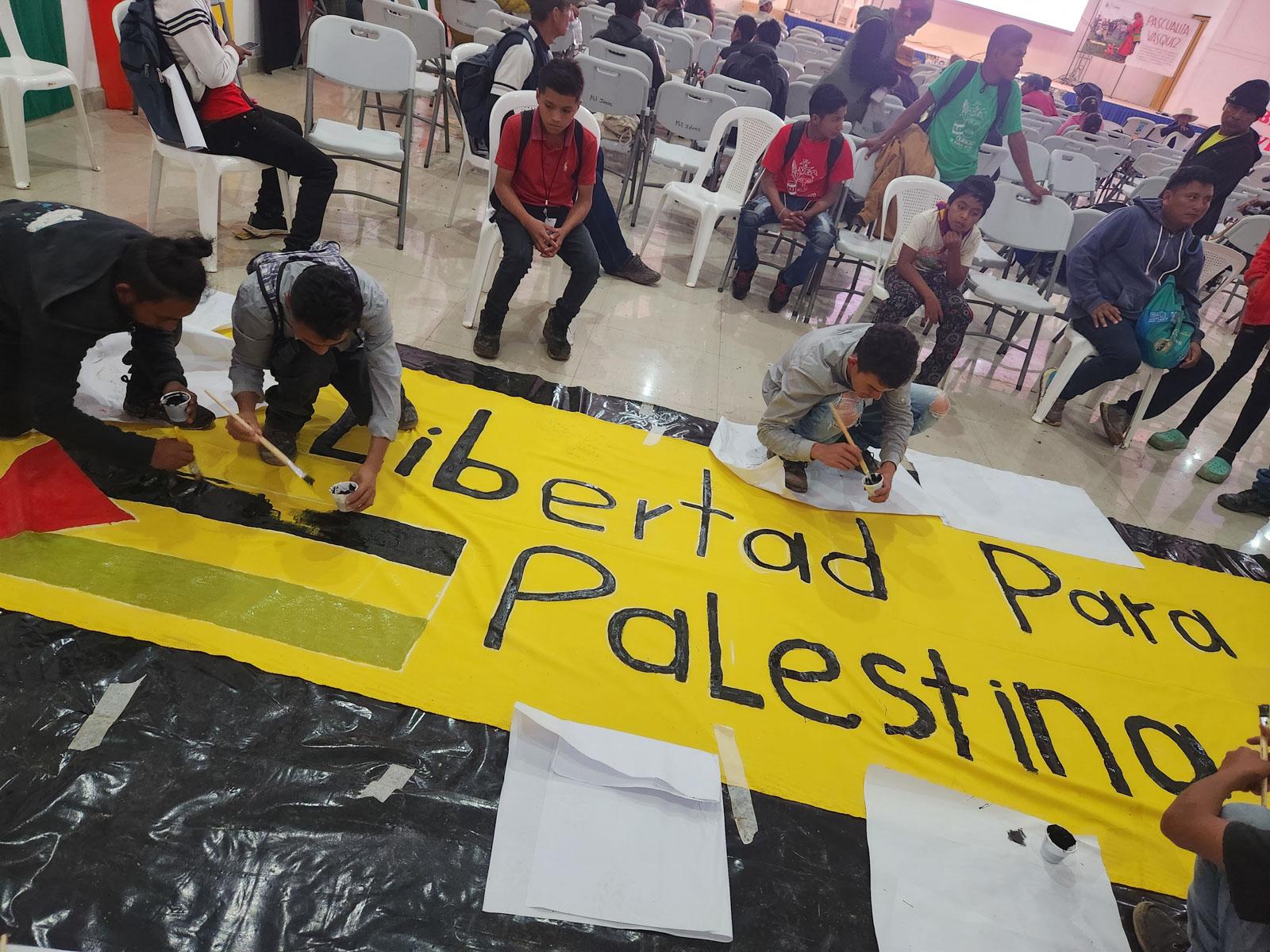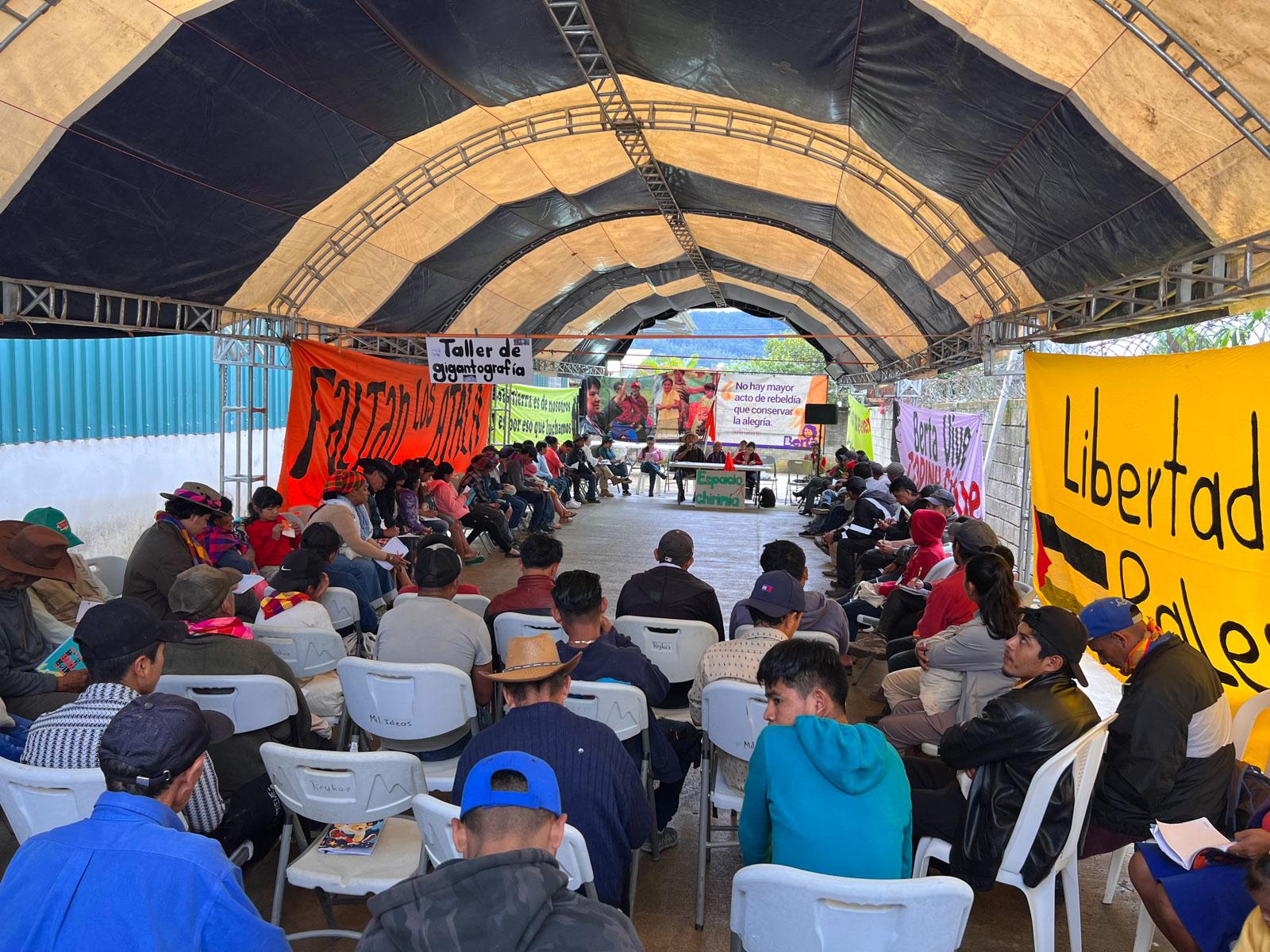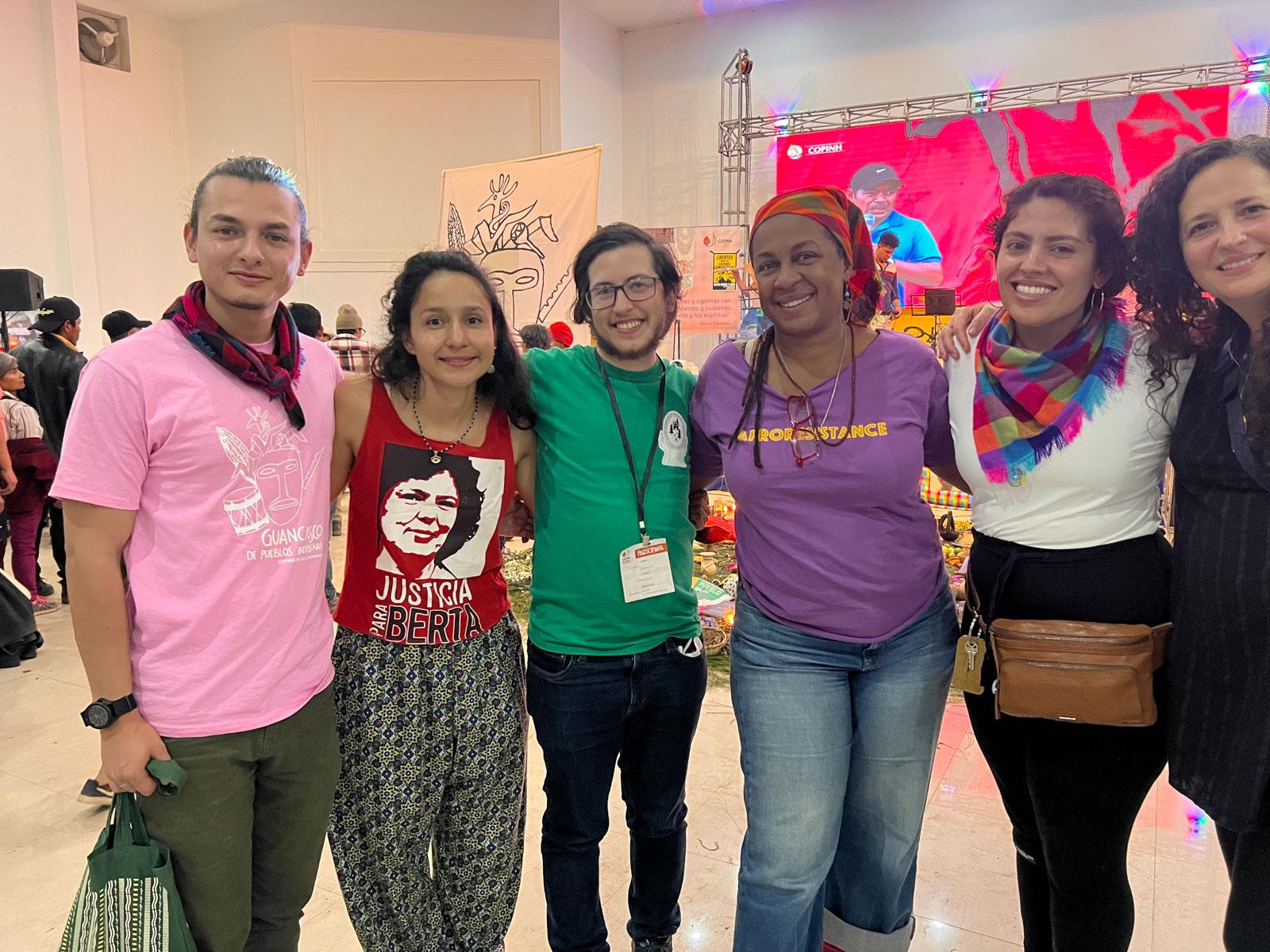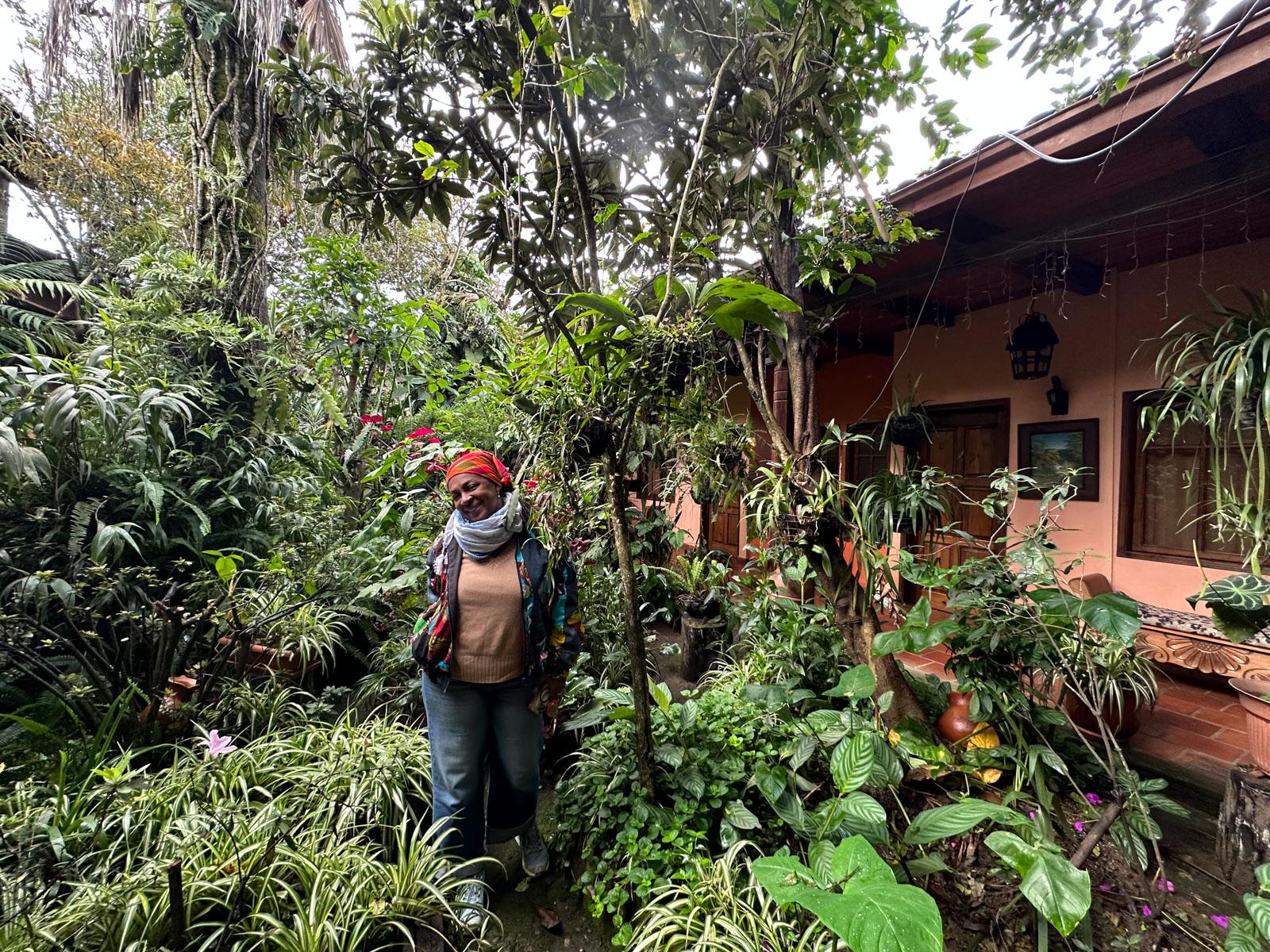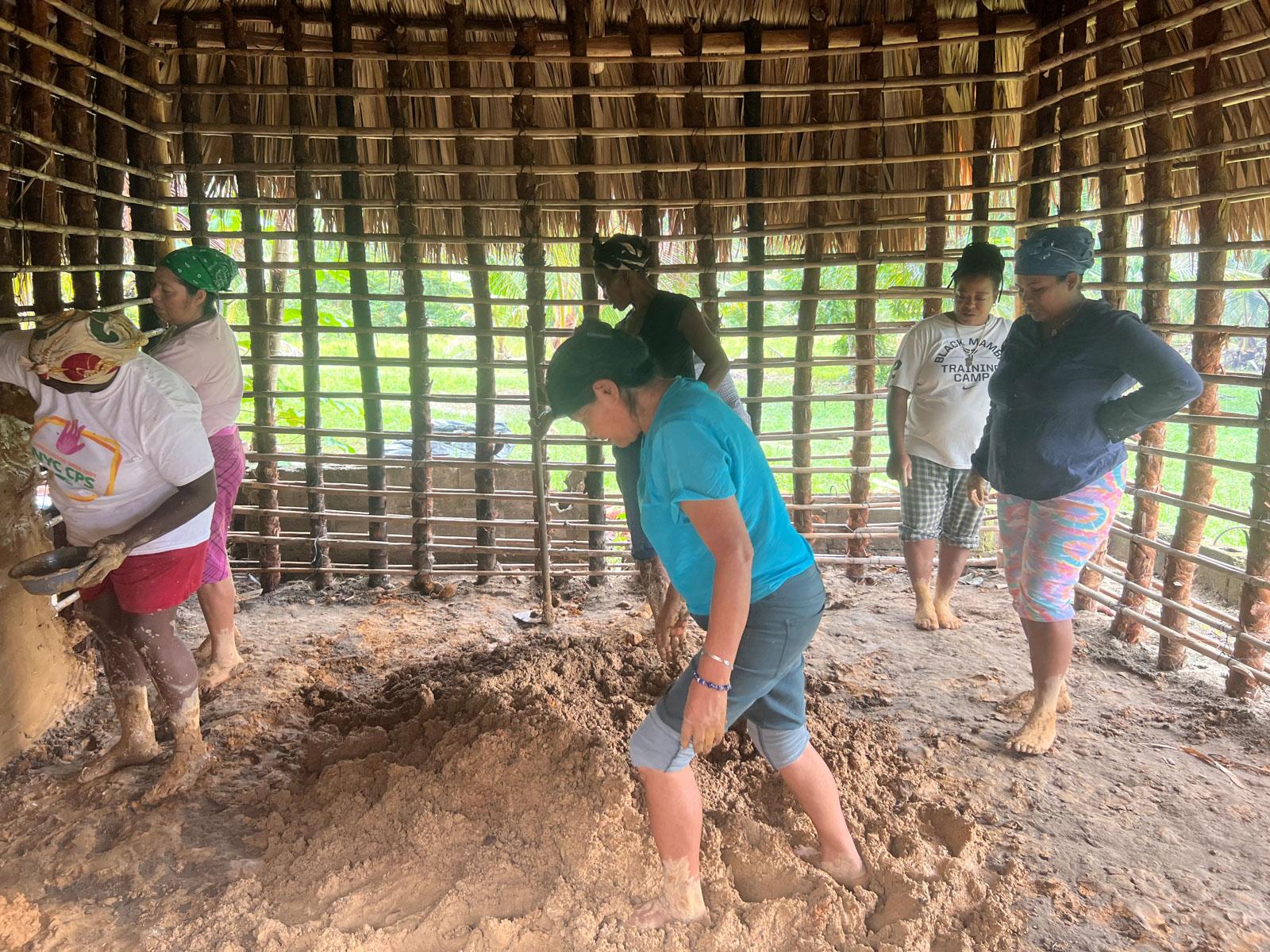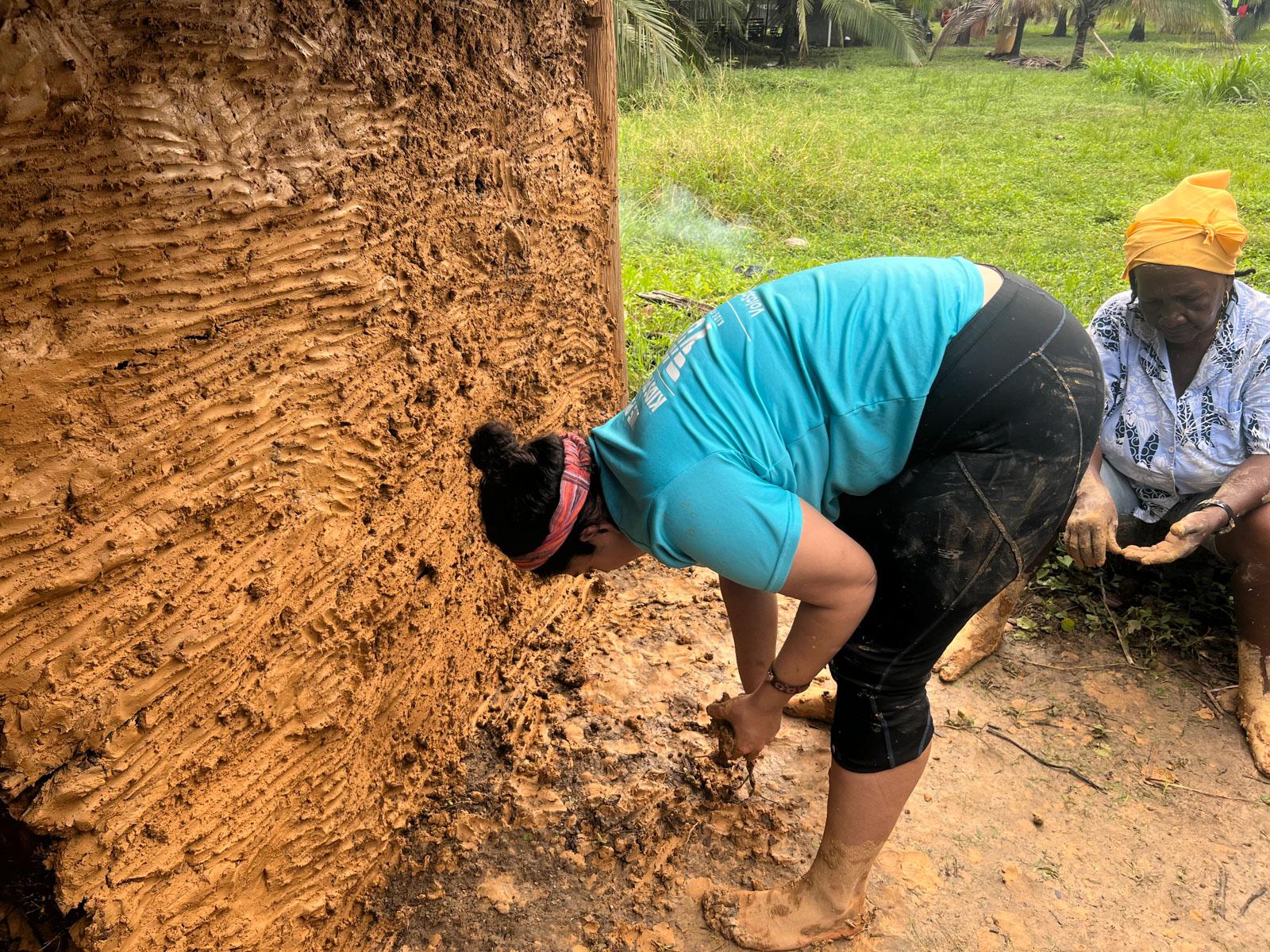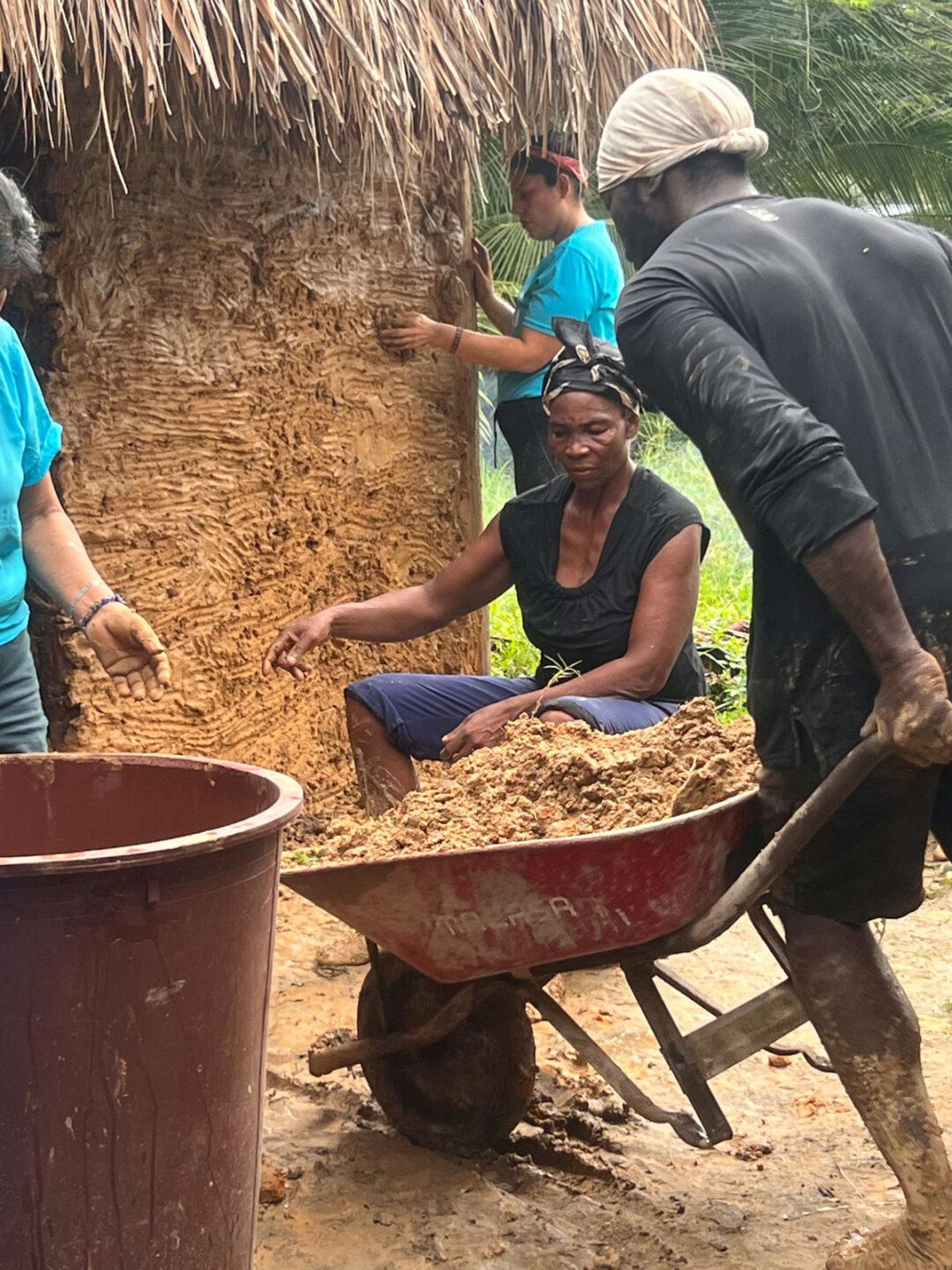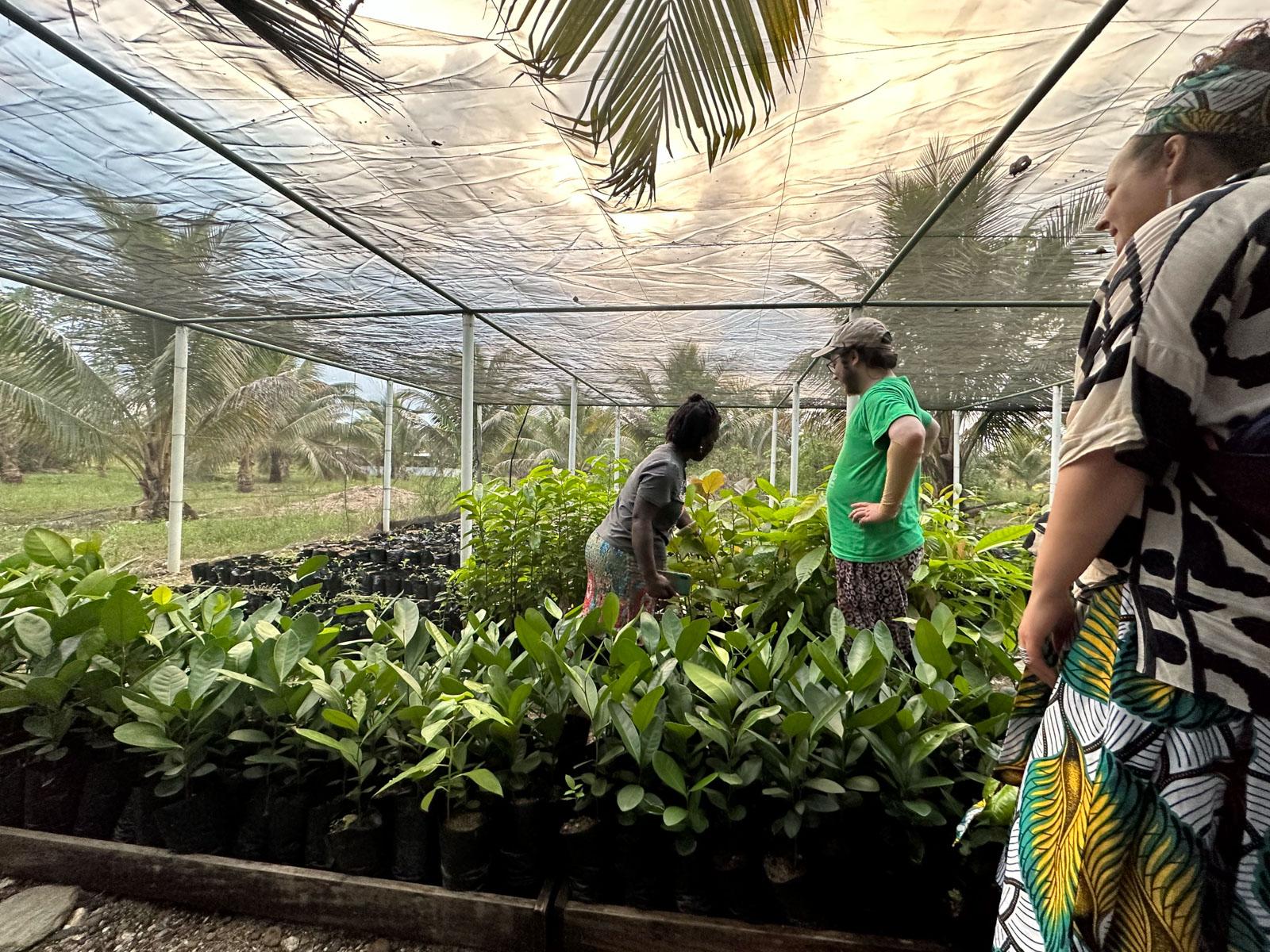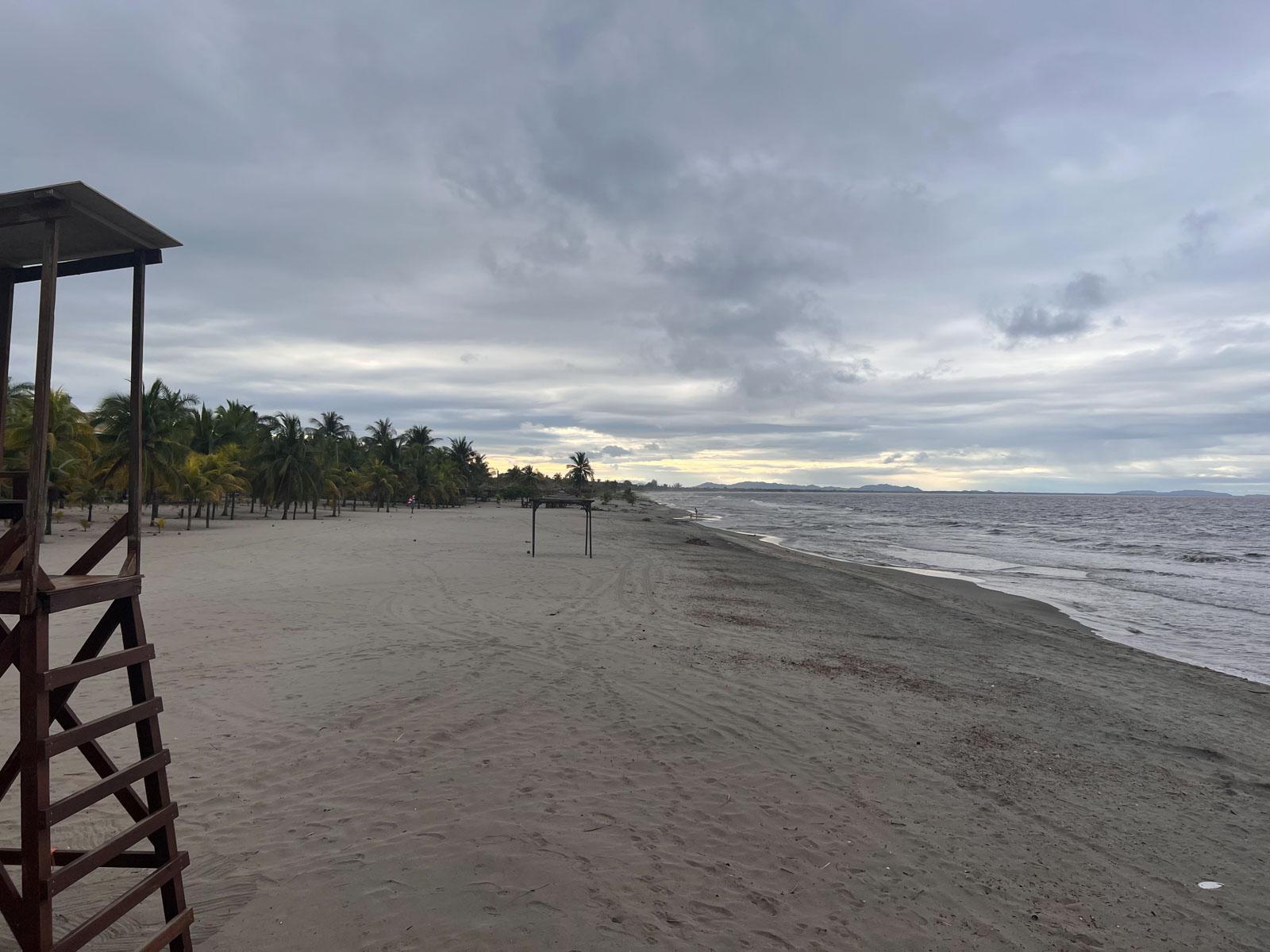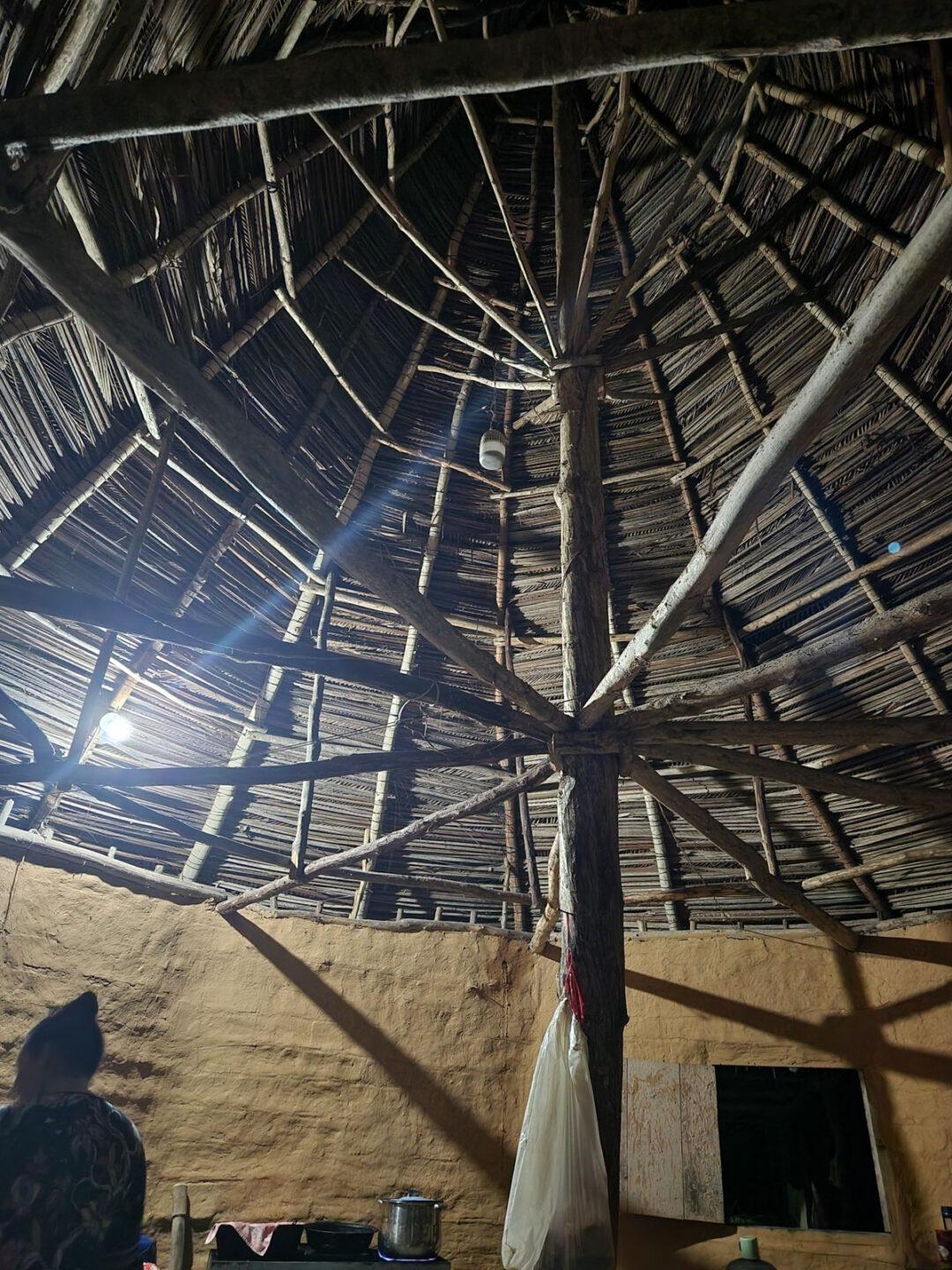Up Close with Indigenous Cultural Resistance in Honduras
“Their power is their machine guns. Our power is our spirituality.” — OFRANEH member
In November 2023, we traveled to Honduras to visit our two partners, Consejo Cívico de Organizaciones Populares e Indígenas de Honduras (COPINH) and Organización Fraternal Negra Hondureña (OFRANEH).
As we walked, shared meals, and sat with our compañerxs, we saw the intersections of territory, culture, and healing up close. We bore witness to radical reclamation of Indigenous practices and territories, radical dreaming of a different world, and a radical alternative of relating to each other.
We traveled to Honduras for COPINH’s 30th anniversary celebration and to check in on OFRANEH after years of limited travel. We have accompanied these powerful movements for over a decade, and we were honored to receive invitations to visit and celebrate.
Both COPINH and OFRANEH are rooted in communities, the Indigenous Lenca and Afro-Indigenous Garífuna peoples, that have suffered cultural and territorial assaults for centuries.
As Spanish colonization took over land and territory, it also desecrated over 2,000 years of rich Indigenous customs, traditions and historical records. Continuing this legacy through today, Honduras’s central government and powerful non-state actors have spent the past few decades further attacking Lenca and Garífuna identities and geographies.
Yet even as the threats continue, both peoples have persevered. They have built movements to recover and defend various aspects of their ways of life.
Guancasco: A Gathering for Resilience
The 30th anniversary event intentionally reflected COPINH’s work to reclaim Lenca cultural practices. They framed the event as a Guancasco, a traditional ceremony of peace, reconciliation, and resilience between Indigenous Peoples.
Around 500 Indigenous people from across Latin America joined COPINH near La Esperanza, Intibucá. There they honored the movement and its martyrs and ancestors like Berta Cáceres and Pascualita Vásquez — including creating a powerful altar as part of the event’s mística.
But the event wasn’t only one of remembrance and celebration. Attendees also spent time strategizing ways to strengthen their various struggles. These panel discussions brought Indigenous voices from the region to discuss the state of their organizing, community health and ancestral wellbeing practices, community-controlled sustainable electricity alternatives, and more.
Even as they focused on their own struggles, Palestine was on many people’s minds. Part of the event included collectively making a banner that read “Libertad para Palestina” (freedom for Palestine).
In these ways, the Guancasco was about reclaiming Indigenous traditions (especially spiritual ones), grounding ourselves in the present, and looking to the future. It beautifully expressed the collective love for ourselves and our earth — unbound by borders — that we need to build a liberated world.
Reclaiming Territories in Vallecito
Our visit with OFRANEH also traveled across intersections of healing, spirituality, and resistance.
Take Vallecito, where OFRANEH has carried out one of the largest land recuperations in Honduras. There, nestled in the jungled coast of the Colón department, the Garífuna people maintain communal kitchens, housing, spiritual spaces, and small-scale farms.
The land had previously been stolen from the Afro-Indigenous Garífuna community by large plantation owners — including those who supply palm oil to multinationals like Nutella. While agribusiness’s monocrop plantations deplete the land’s resources, OFRANEH has implemented agroecology on Vallecito’s reclaimed territory, combining traditional methods and native plants with more modern techniques to protect the soil for generations to come.
Threats and Power
Since then, Garífuna territory has faced threats on various fronts: agribusiness, narcos, tourist and expatriate developments, and all the state and extra-state armed bands they employ.
To paint a picture of the complex web of threats OFRANEH faces, our comrade Miriam Miranda faced an assassination attempt only two weeks before we saw her at the Environmental Grantmakers Association conference in October 2023. After the attempt on her life, the central government assigned her six armed guards from the Honduran military to protect her — the very same military evicting Garífuna people in another community.
In the face of such grave assaults, healing and collective care become a necessity. These practices, grounded in traditional Garífuna spirituality and culture, keep the community united, strong, and undeterred on their quest for freedom.
Even the simple act of building a house together — constructing the house frame and spreading the clay as we did while we were there — allowed us to get to know people in the community. And at the height of the COVID pandemic, OFRANEH organized ancestral healing houses that spread vital information and helped to manage symptoms and viral spread.
Besides caring for one another in Vallecito itself, OFRANEH regularly organizes drumming and other spiritual practices as a form of struggle. They told us of one time, while their comrades faced a court trial for resisting an eviction, that a huge snake slank out in the road between OFRANEH’s drummers and armed military police. Their enemies accused them of being dangerous witches.
Healing and Defending the Sacred
For Mental Health Awareness Month in May, we have been focusing on stories of healing justice and collective care. We were grateful to learn firsthand from our comrades on the frontlines of defending the sacred — the body, the mind, the spirit, and the Earth.





